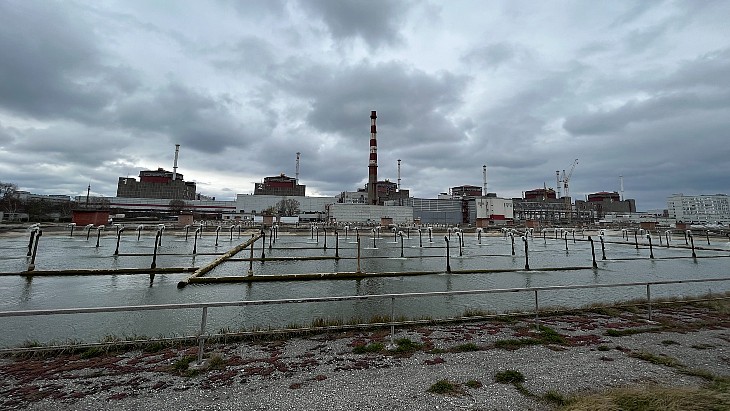The six-reactor plant, which is on the front line and has been under the control of Russian military forces since early March 2022, lost its connection to its last remaining back-up 330kV line at 22:26 on Friday "due to an external grid fault". Five hours later, at 03:32 on Saturday, it also lost the main 750kV line, with the International Atomic Energy Agency (IAEA) saying "the cause appeared to be in the outside grid far away" from the plant.
According to the IAEA: "As a result, the site’s 20 diesel generators automatically started operating. ZNPP staff then reduced the number in operation to eight diesel generators, enough to ensure that the plant’s six reactors - all of which are shut down - have enough power for essential cooling."
The main 750kV line was restored shortly after 08:08 on Saturday. According to a report by Russia's Tass news agency, Renat Karchaa, adviser to Rosenergoatom's CEO, said the 330 kV line "is tentatively expected to be restored by 5 December" adding "there are no threats and risks for nuclear security".
IAEA Director General Rafael Mariano Grossi said: "The most recent external power outage is yet another reminder about the precarious nuclear safety and security situation at the plant, which can be affected by events far away from the site itself. The IAEA continues to do everything it can to help prevent a nuclear accident. I also call on all parties not to take any action that could further endanger the plant."
The IAEA said that one of the four coolant pumps at unit 4 was interrupted during the power loss and it is now "being brought from semi-hot shutdown back to hot shutdown to produce heating and steam for the site and the nearby town of Energodar where most plant staff live". The other five units remain in cold shutdown.
Energoatom, the Ukrainian operators of the plant before the Russian military took control of it, warned that all units need to be in cold shutdown to minimise risk, in line with the regulatory orders issued by Ukraine's nuclear regulator earlier this year. The IAEA has also in the past urged the current operators of the plant to explore alternative methods of providing the steam and heating, so all the reactors can be in cold shutdown.







_55401.png)
_23009.jpg)






